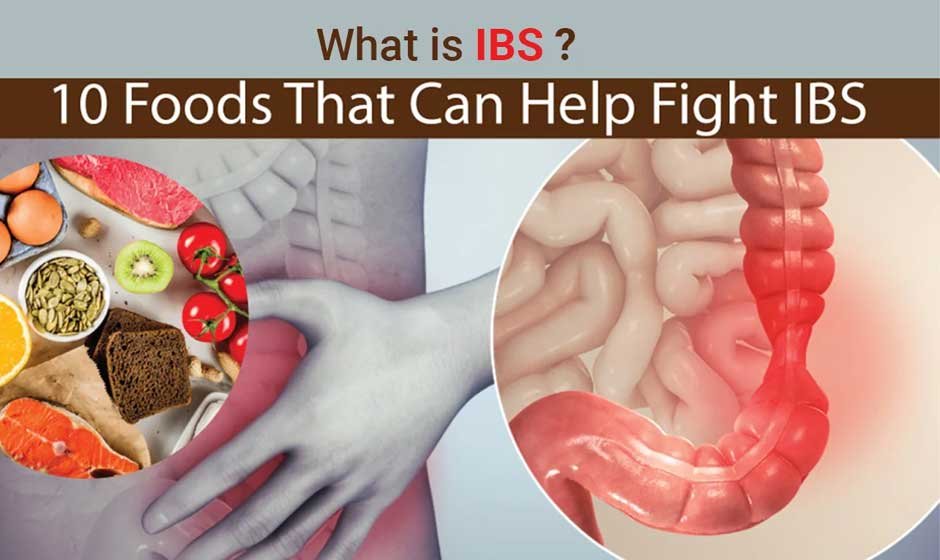Understanding IBS and Its Challenges
Irritable Bowel Syndrome (IBS) is a condition that affects the digestive system, leading to symptoms such as bloating, gas, diarrhea, constipation, and stomach pain. While it does not cause permanent damage to the intestines, the symptoms can be disruptive and uncomfortable. Since IBS affects people differently, no single approach works for everyone. Finding the right IBS treatment requires patience and an understanding of how different factors influence digestion.
Dietary Adjustments for IBS Management
Identifying Trigger Foods
Food plays a significant role in IBS symptoms. Some people notice that specific foods make their symptoms worse, while others find relief by adjusting their diet. Dairy, fried foods, caffeine, alcohol, and high-fat meals are common triggers. Processed foods with artificial sweeteners can also cause digestive issues.
Keeping a food diary can help identify what makes symptoms worse. Writing down meals and symptoms can reveal patterns over time, allowing people to make informed dietary changes.
The Role of Fiber
Fiber affects digestion in different ways, depending on the type. Soluble fiber, found in foods like oats, bananas, and carrots, can help regulate bowel movements. Insoluble fiber, found in whole grains and raw vegetables, may worsen symptoms for some people. Gradually increasing fiber intake can help avoid bloating and discomfort.
For those with constipation, fiber supplements can sometimes be useful. However, they should be introduced slowly to prevent additional digestive issues.
Low-FODMAP Diet
A low-FODMAP diet is often recommended as an IBS treatment. This approach reduces certain types of fermentable carbohydrates that can trigger symptoms. Foods high in FODMAPs include onions, garlic, beans, and some fruits. Removing these foods for a period and then slowly reintroducing them can help determine which ones cause problems.
Since this diet is restrictive, it should be followed with guidance from a healthcare provider or dietitian to ensure proper nutrition.
Lifestyle Changes to Improve IBS Symptoms
Stress Management and Relaxation Techniques
Stress does not cause IBS, but it can make symptoms worse. The digestive system is closely connected to the nervous system, which means that anxiety, stress, and emotional distress can trigger discomfort.
Practices like deep breathing, meditation, and gentle exercise can help manage stress. Yoga and tai chi have been beneficial for some people. Regular physical activity, even a daily walk, can support digestion and overall well-being.
Sleep and Its Impact on IBS
Poor sleep can make IBS symptoms worse. Establishing a consistent sleep schedule, avoiding caffeine late in the day, and creating a relaxing bedtime routine may improve digestive function. Lack of sleep has been linked to increased gut sensitivity, making pain and bloating feel worse.
Hydration and Digestive Health
Drinking enough water is an overlooked part of IBS disease treatment. Proper hydration helps with digestion and can prevent constipation. Herbal teas, especially those with peppermint or ginger, may help soothe the digestive system.
Medical Approaches to IBS Treatment
Medications for Symptom Relief
Doctors may recommend medications based on a person’s specific symptoms. Antispasmodics can help reduce cramping, while laxatives or fiber supplements may be suggested for constipation. For those dealing with frequent diarrhea, certain medications can slow down bowel movements.
Some individuals benefit from low-dose antidepressants, which can help with gut sensitivity and pain. However, medication is typically used alongside diet and lifestyle changes rather than as a sole treatment.
IBS Pain Treatment Options
Abdominal pain is a common complaint among people with IBS. Over-the-counter pain relievers may not always be effective. Some find relief through heat therapy, such as applying a warm heating pad to the stomach.
Peppermint oil capsules are another option for IBS pain treatment. Studies suggest they may help relax the muscles in the gut, reducing cramps and discomfort. As with any supplement, it is best to consult a healthcare provider before starting.
IBS Herbal Treatment Approaches
Some people explore IBS herbal treatment as an alternative or complement to conventional care. Herbs like peppermint, chamomile, and fennel have been traditionally used to ease digestive discomfort.
Peppermint oil is often recommended for IBS due to its ability to relax intestinal muscles. Chamomile tea may help with bloating and cramping, while fennel seeds are sometimes used to reduce gas and aid digestion.
Though many herbal remedies have been used for centuries, their effects can vary from person to person. Consulting a healthcare provider before using herbal treatments is recommended to ensure they do not interfere with other medications or conditions.
The Importance of Personalized IBS Treatment
IBS affects everyone differently, so treatment needs to be tailored to each individual. What works for one person may not work for another. Some may find relief through diet changes, while others require a combination of medical and lifestyle adjustments.
By paying attention to symptoms, making gradual changes, and working with a healthcare provider, it is possible to manage IBS effectively. Although IBS does not have a cure, the right combination of strategies can help reduce discomfort and improve daily life.
Ongoing Research and Future Treatments
Scientists continue to study IBS to develop better treatments. Research on the gut microbiome has shown that an imbalance in gut bacteria may contribute to symptoms. Probiotics and prebiotics are being explored as potential options for managing IBS, though their effectiveness varies from person to person. New medications targeting gut motility and inflammation are also being tested.
The Role of Therapy in IBS Management
For some people, psychological therapies like cognitive-behavioral therapy (CBT) and gut-directed hypnotherapy have shown promise in reducing IBS symptoms. These approaches help people change the way they respond to pain and discomfort, making symptoms feel more manageable. Since stress and emotions can impact digestion, therapy can be a useful tool alongside dietary and medical treatments.
Staying Consistent with Treatment
IBS management requires consistency. Small changes, like adjusting diet, staying active, and reducing stress, can make a difference over time. Working with healthcare professionals and staying informed about new treatment options can help people find what works best for them. While IBS can be frustrating, many people find relief through a combination of approaches that suit their individual needs.










